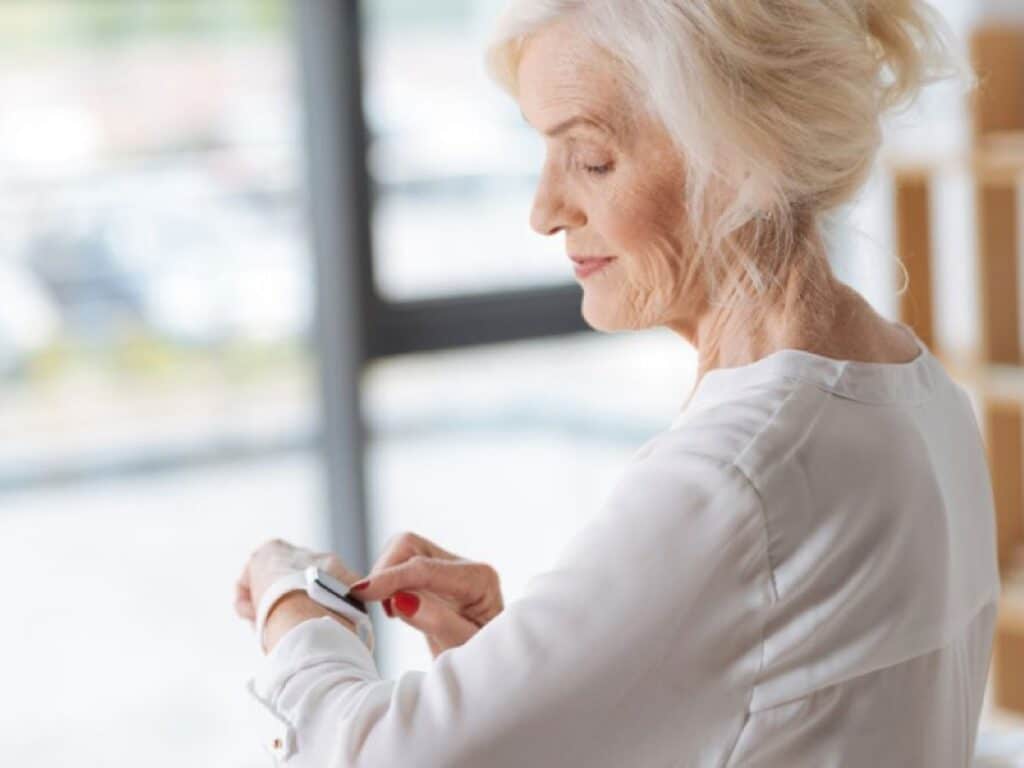In the Western world, people are living longer than ever before: in 1950, the average life expectancy in the US stood at just over sixty-four years, whereas today, in 2023, it’s rocketed up to a little more than seventy-nine years – a significant increase.
With this boost in life expectancy, the senior population is now larger than at any other time in history. Along with this, grown adults in today’s society normally live apart from their elderly parents – often in a totally different town or even state – rather than in the communal, multi-generational household settings of days past.
So what’s the solution when it comes to ensuring the safety, dignity, and independence of our elderly relatives who are still living in their own homes? This is where tech comes into play; below, we explore some of the technical innovations that are making a big difference in the daily lives of seniors and giving their relatives peace of mind, too.
Smart Watches for Enhanced Safety
Smartwatches are nothing new, but now there are many options that incorporate many health and safety features that could be vital to your elderly relatives. What’s more, lots of medical alert companies have adopted smartwatch technology to develop highly wearable, intuitive, and effective devices designed to keep the user safe in a variety of ways.
Some of the health benefits of smart watches include the ability to send alerts for help, monitor the pulse rate, and track the electrical activity of the wearer’s heart. Many smartwatches now also include well-being tools that can help users to stay more active and improve sleep quality by, for example, reminding the wearer to keep moving and providing a pedometer, along with tracking sleep patterns to help identify where changes could be made to promote a better night’s sleep.
Video Doorbells for Better Security
Installing a smart doorbell will allow your elderly loved one to see who’s come to their front door without answering it, helping them to feel safer in their home and preventing pestering from cold callers.
Most video doorbells allow the user to speak to and hear the responses of those who have come calling for added convenience – even when they’re not at home. If you’re thinking of introducing some smart devices to your senior parent’s home, a smart doorbell could be a great first step.
Intuitive Fall Detection
Recent advances in tech mean that there are now fall detectors on the market that can learn the dimensions of the room in which it is deployed, as well as the resident’s usual movements and behaviors. Combined, this results in a powerful device that will sound the alert if it intuits that a fall has occurred.
This tech can help your elderly loved one feel more secure in their home and promote their continuing independence while giving you peace of mind that, in the event of a fall, help will be swiftly summoned.
Digital Pill Dispensers
If your senior relative is experiencing memory problems, then their ability to take the medication they need at the right time and consistently is likely to be a worry. Again, tech can provide a great solution in the form of digital pill dispensers.
These devices work by automatically dispensing medication at set times of the day, accompanied by an alarm to remind the user that it’s time to take a pill. Even more helpful, if a dose is missed, a notification will be sent to the individual’s caregiver to let them know what’s happened.
Virtual Assistants for Easier Day-to-Day Living
Easily accessible tech assistants such as Google Home and Alexa can be used by your senior parent to help with a range of everyday tasks, as well as to issue reminders regarding medical and other appointments and to provide entertainment.
Virtual assistants can also be a great way of keeping your loved one connected with friends, family members, and their local community, and, if connected to other smart devices in the home, can be used to easily access and control these via voice control. For example, a smart fridge is useful for helping your relative stay on top of what food is available, and what needs replacing or has gone out of date – a smart fridge can be connected to an Alexa to manage food shopping effortlessly.
Incorporating Tech into Daily Life
Help your elderly relative live independently and happily for longer, without compromising on safety and security, by using a range of tech devices and solutions to assist with everything from fall monitoring to keeping track of what’s in the fridge.
Tech is advancing at a faster pace than ever before, and it’s highly likely that wearable and diagnostic tech will continue to move forward in leaps and bounds, making it even easier to ensure that seniors are healthy and safe whilst living in their own homes. Digital, AI-enriched assistants – possibly even companions- are also on the horizon, designed to provide even more services and support for the increasing elderly population.
